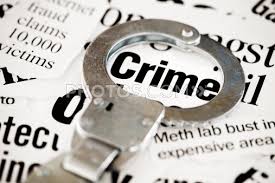(NNPA) We talk a lot about criminal justice and crime in the streets, especially among Black people. Mass incarceration of Black men, disparate sentencing, private prisons, legal slavery inside prisons based on the 13th Amendment, and all the other plagues that beset us vis-à-vis our criminal justice system and prison industrial complex, dominate our conversations. But, there is another take on crime that we often overlook or simply ignore; it’s the economic crimes we commit against ourselves.
Amos Wilson posed two questions in his book, Black on Black Violence: “Does the African American community, by continuing to permit itself to be ‘legitimately’ economically exploited by non-African American communities thereby de-legitimize itself and permit itself to be criminalized while de-criminalizing its exploiters? Has the African American community – addicted to wasteful and nonsensical consumerism, with its unwillingness to invest its wealth and human resources in itself, in America, and uncommitted to controlling its own internal markets – contributed in no small way to the criminalization of its sons, to the increasing impoverishment of its children, to the violence which prevails within its households and neighborhoods?”
If you are familiar with Amos Wilson’s work, you know he wrote very long sentences, but I believe it was because he had so much to say (See the volume of work he compiled in Blueprint for Black Power), and he knew the urgency with which he had to say it.
Wilson’s questions are not only interrogatory, they are declarative as well. They paint a dismal picture of who we are and what we are about when it comes to crime and punishment. They suggest, of course, that Black folks are not taking care of our business economically, thus, actually causing much of the crime we lament in our neighborhoods.
It is indeed a crime to “allow” ourselves to be economically exploited, and we can be considered sick if we simply consume the products made by others but never invest in producing and purchasing products of our own. We commit economic crimes against ourselves; our children commit violent crimes against one another; and we are collectively punished as a result of such crimes. Are we able to break this vicious cycle of self-annihilation?
Our being both the perpetrator and the victim of the same economic crimes is just downright stupid. We commit the crimes of waste and conspicuous consumption, and then we are punished because of it. We refuse to develop, grow, and support our own businesses, and then we are punished by having to depend on someone else to fill our basic needs. We fail to help provide jobs for our youth, and they end up committing crimes against us and one another, while their unemployment rate nears 50 percent. Economically, our own actions accuse us, indict us, convict us, and punish us.
How can we demand respect when we are begging others to fill needs that we can fill for ourselves? What must our children think of us, as we show them we can’t take care of them? Some of us don’t even know how to grow a tomato for our families, yet we want “respect.”
There is no denying that many of us are doing well and “doing good” at the same time. There are many conscious Black business owners across the country that are carrying probably 90 percent of the load for us by doing the right thing; they get up each day determined to help empower us in some way. Hats off to them! They certainly deserve our kudos. But it’s the rest of our people, the vast majority of us, who are in jeopardy of falling off the economic cliff.
These are trying times. We are in serious trouble, and far be from me to downplay that reality. And it’s not about whether the glass is half full or half empty; this is about survival. It’s not about what certain celebrities say, if that’s all they’re doing is talking. It’s not about whose camp you are in when it comes to the president and his critics. It’s not about hair weaves, gym shoes, soft drinks, the wives of whatever, the names of celebrities’ babies, conspiracies, corruption, the best singer, wall street bankers, al Qaeda, Syria, Iran, influential Blacks, leading Blacks, touchdowns, slam dunks, homeruns, games, sets, and matches. This is about economic crimes and the resulting punishment that ensues to Black people because of our inappropriate behavior and the inordinate amount of time we spend on “nonsense, as Maria Stewart once said.
The situation we are facing is an ever widening gap between those who have a lot and are self-reliant, and those of us who are dependent upon and beholding to them. Much of the information we allow to permeate our brains is meaningless, useless, non-recyclable trash. The vicarious nature of many of our lives will profit us little. My suggestion is that, first, we drop down and send up some serious “knee mail,” and then get up and get to work to stop our own crimes and punishment.
Amos Wilson also said, “When the Black community squanders the economic inheritance of its own children while it fills to overflowing the coffers of the children of other communities…it gets the crime it deserves.”
Jim Clingman, founder of the Greater Cincinnati African American Chamber of Commerce, is the nation’s most prolific writer on economic empowerment for Black people. He is an adjunct professor at the University of Cincinnati and can be reached through his Web site, blackonomics.com






…this is a serious statement on the problem, where is the serious statement on the solution and where is the action that moves us toward the solution?…